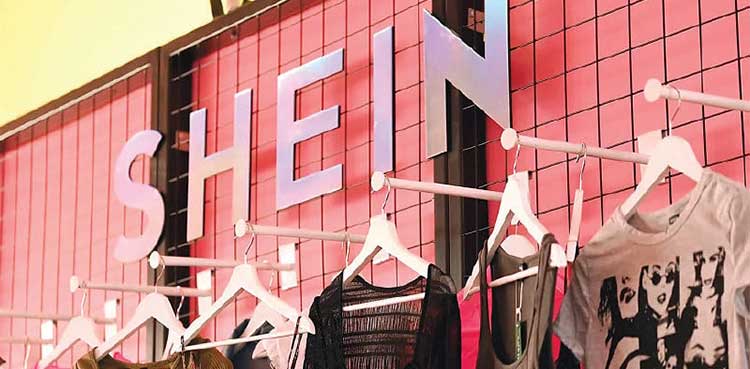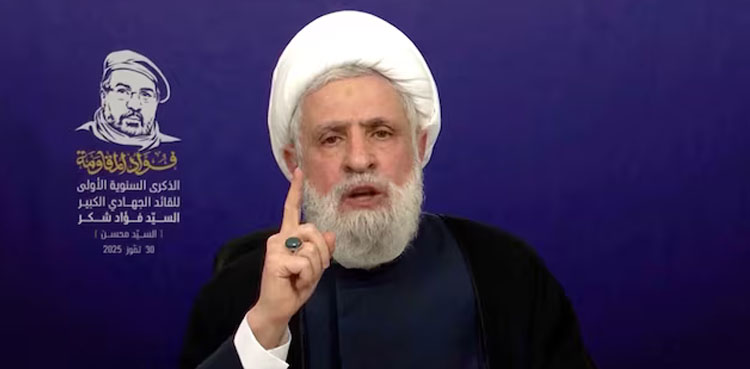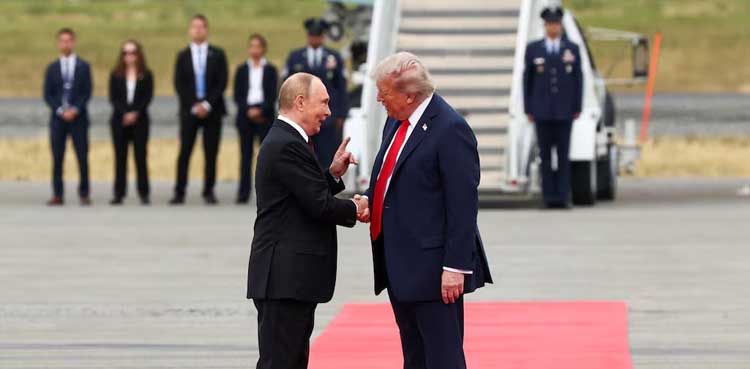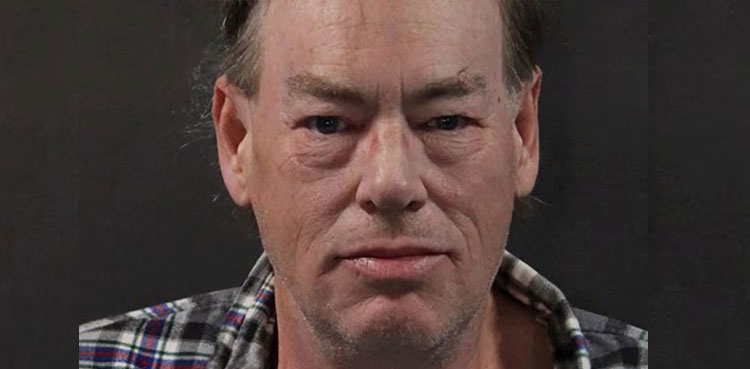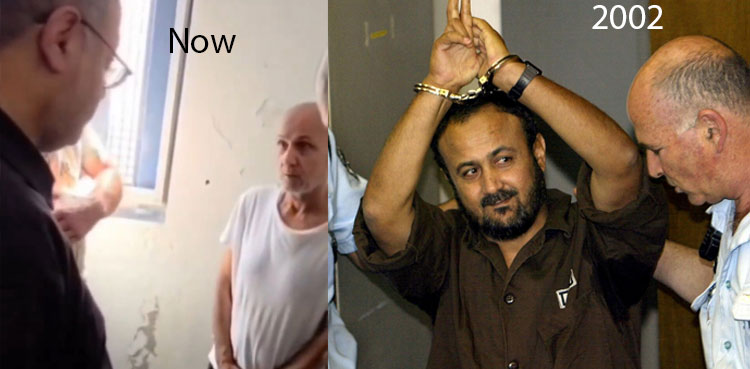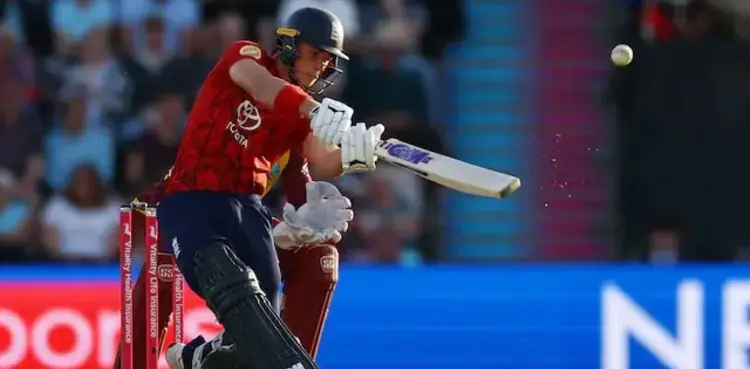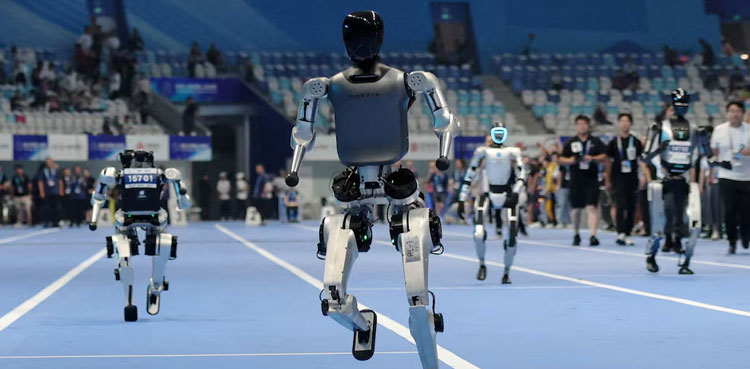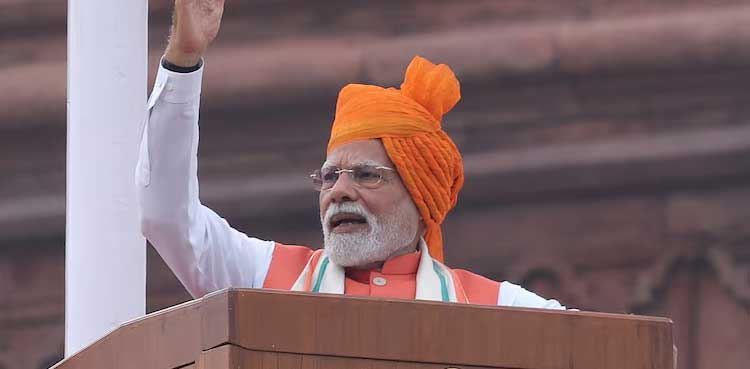U.S. President Donald Trump greeted Russian President Vladimir Putin with a handshake ahead of a high-stakes summit in Alaska on Friday that could determine whether a ceasefire can be reached in the deadliest war in Europe since World War Two.
Trump disembarked his plane, Air Force One, and awaited Putin on the tarmac. The two exchanged greetings while smiling.
Ukrainian President Volodymyr Zelenskiy, who was not invited to the talks, and his European allies fear Trump might sell out Ukraine by essentially freezing the conflict with Russia and recognising – if only informally – Russian control over one-fifth of Ukraine.
Trump sought to assuage such concerns as he boarded Air Force One, saying he would let Ukraine decide on any possible territorial swaps. “I’m not here to negotiate for Ukraine, I’m here to get them at a table,” he said.
Asked what would make the meeting a success, he told reporters: “I want to see a ceasefire rapidly … I’m not going to be happy if it’s not today … I want the killing to stop.”
Trump is expected to formally greet Putin before the two presidents are due to meet at an Air Force base in Alaska’s largest city at around 11 a.m. (1900 GMT) for their first face-to-face talks since Trump returned to the White House.
Trump will be joined in his meeting with Putin by Secretary of State Marco Rubio and Trump’s special envoy to Russia, Steve Witkoff, White House spokeswoman Karoline Leavitt said. Putin is also expected to have senior aides at his side.
At the subsequent larger, bilateral meeting, Treasury Secretary Scott Bessent, Commerce Secretary Howard Lutnick, Defense Secretary Pete Hegseth and chief of staff Susie Wiles will also join Trump, Leavitt said.
Trump hopes a truce in the 3-1/2-year-old war will bring peace to the region as well as bolster his credentials as a global peacemaker worthy of the Nobel Peace Prize.
For Putin, the summit is already a big win that he can portray as evidence that years of Western attempts to isolate Russia have unravelled and that Moscow is retaking its rightful place at the top table of international diplomacy.
Russian special envoy Kirill Dmitriev described the pre-summit mood as “combative” and said the two leaders would discuss not only Ukraine but the full spectrum of bilateral relations, Russia’s RIA news agency reported.
Trump, who once said he would end Russia’s war in Ukraine within 24 hours, conceded on Thursday it had proven a tougher task than he had expected. He said if Friday’s talks went well, quickly arranging a second, three-way summit with Zelenskiy would be even more important than his encounter with Putin.
Kremlin spokesman Dmitry Peskov said a three-way summit would be possible if the Alaska talks bore fruit, Interfax news agency reported. Peskov also said Friday’s talks could last six to seven hours.
Zelenskiy said the summit should open the way for a “just peace” and three-way talks that included him, but added that Russia was continuing to wage war. A Russian ballistic missile earlier struck Ukraine’s Dnipropetrovsk region, killing one person and wounding another.
“It’s time to end the war, and the necessary steps must be taken by Russia. We are counting on America,” Zelenskiy wrote on the Telegram messaging app.
‘SMART GUY’
Trump said there is mutual respect between him and Putin.
“He is a smart guy, been doing it for a long time, but so have I … We get along, there’s a good respect level on both sides,” Trump said of Putin. He also welcomed Putin’s decision to bring businesspeople to Alaska.
“But they’re not doing business until we get the war settled,” he said, repeating a threat of “economically severe” consequences for Russia if the summit goes badly.
The U.S. has discussed internally using Russian nuclear-powered icebreaker vessels to support the development of gas and LNG projects in Alaska as one of the possible deals to aim for, Reuters reported.
One source acquainted with Kremlin thinking said there were signs Moscow could be ready to strike a compromise on Ukraine, given that Putin understood Russia’s economic vulnerability and costs of continuing the war.
Reuters has previously reported that Putin might be willing to freeze the conflict along the front lines, provided there was a legally binding pledge not to enlarge NATO eastwards and to lift some Western sanctions. NATO has said Ukraine’s future is in the alliance.
Russia, whose war economy is showing strain, is vulnerable to further U.S. sanctions – and Trump has threatened tariffs on buyers of Russian crude, primarily China and India.
“For Putin, economic problems are secondary to goals, but he understands our vulnerability and costs,” the Russian source said.
Putin this week held out the prospect of something else he knows Trump wants – a new nuclear arms control accord to replace the last surviving one, which is due to expire in February.
COMMON GROUND?
The source familiar with Kremlin thinking said it looked as if the two sides had been able to find some common ground.
“Apparently, some terms will be agreed upon … because Trump cannot be refused, and we are not in a position to refuse (due to sanctions pressure),” said the source, who spoke on condition of anonymity because of the matter’s sensitivity.
Putin has said he is open to a full ceasefire but that issues of verification must first be sorted out. One compromise could be a truce in the air war.
Zelenskiy has ruled out formally handing Moscow any territory and is also seeking a security guarantee backed by the United States.
Ukrainians who spoke to Reuters in central Kyiv on Friday were not optimistic about the summit.
“Nothing good will happen there, because war is war, it will not end. The territories – we’re not going to give anything to anyone,” said Tetiana Harkavenko, a 65-year-old cleaner.

